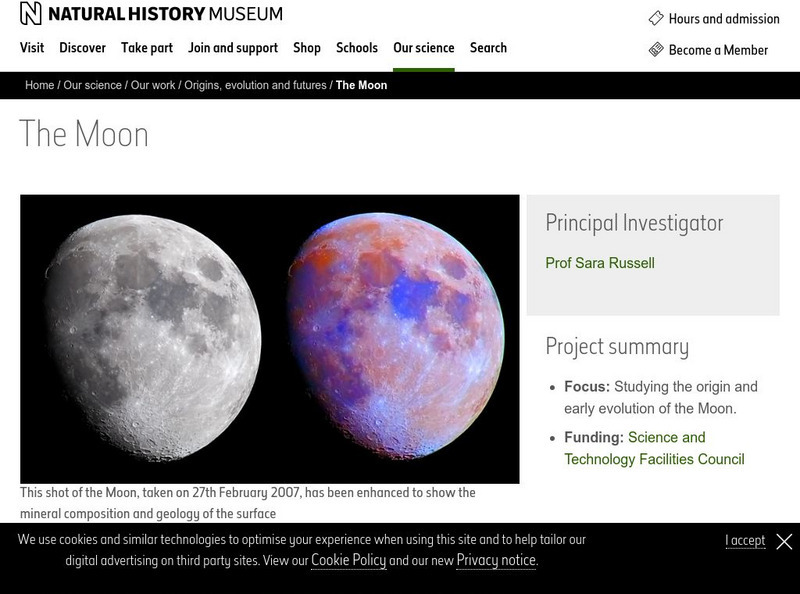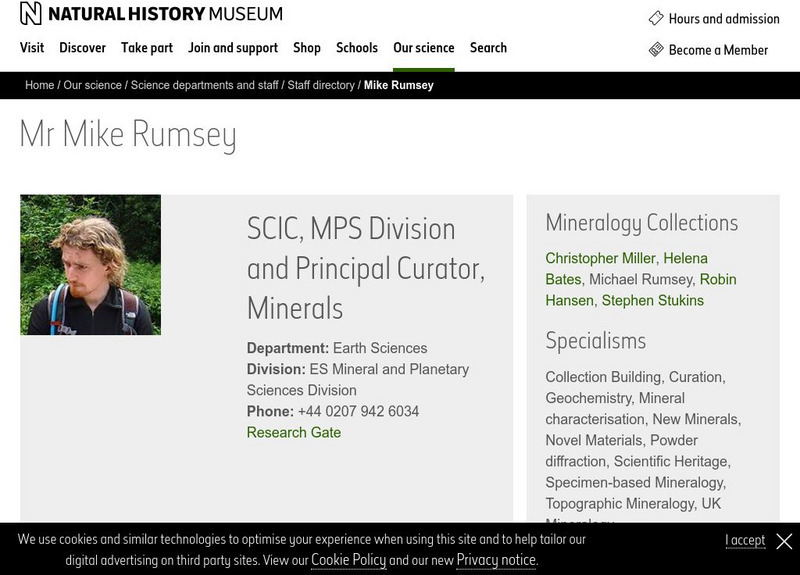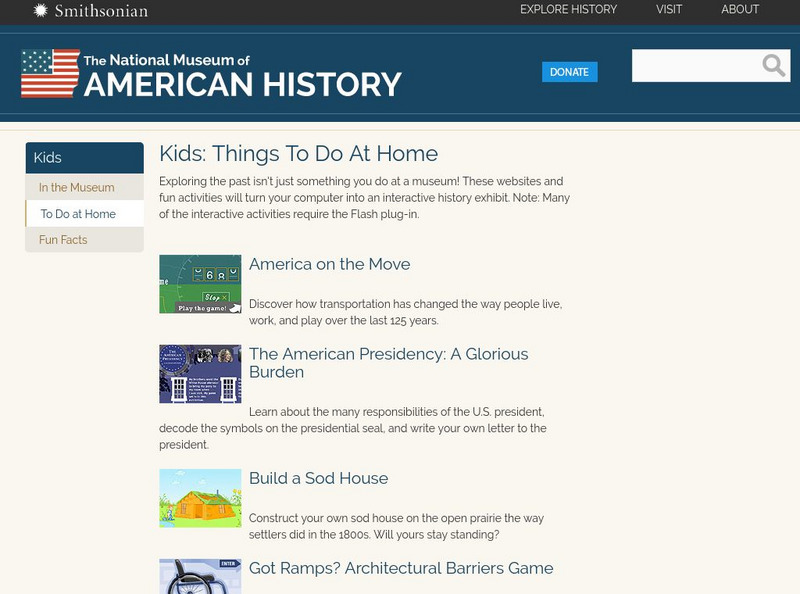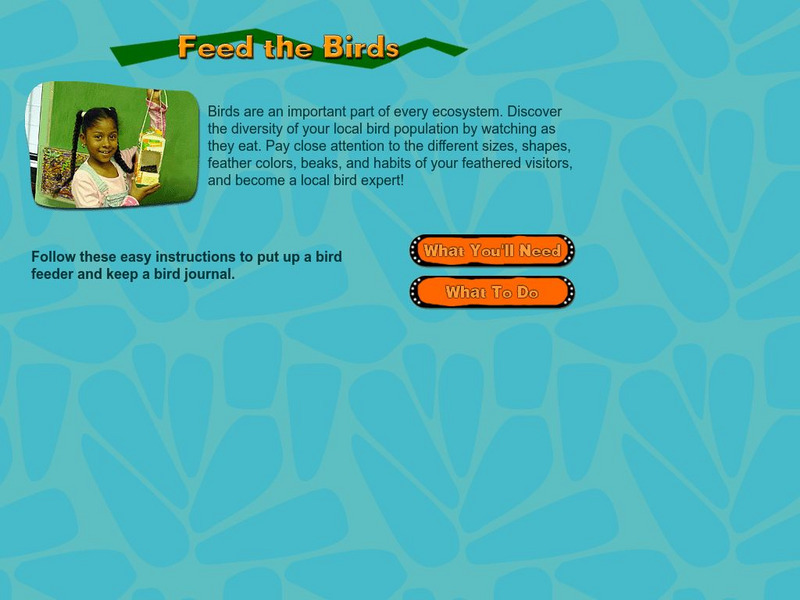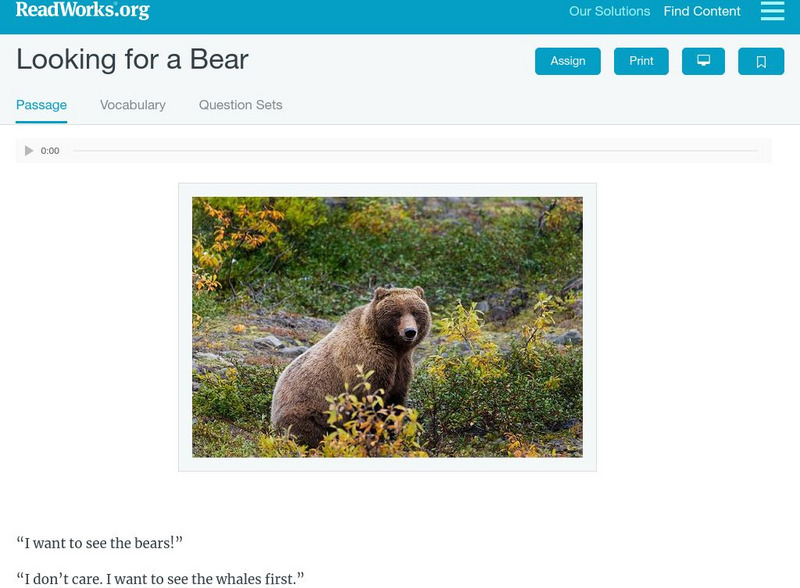Hi, what do you want to do?
American Museum of Natural History
Mesozoic Museum
Mini museum curators create an exhibit that showcases the Mesozoic era. Pupils use their knowledge of dinosaurs to make informative posters, drawings, and dioramas. Following three steps to complete the hands-on activity, scholars read...
Curated OER
The Effect of Natural Selection on Genes, Traits and Individuals
Rotating through five stations, evolutionary biologists explore the question of how changes in DNA facilitate the changes in a population over time. High-quality, colorful cards of animals, skeletons, skulls, and DNA sequences can all be...
Early Childhood Learning and Knowlege Center
My Body My Senses
In a comprehensive unit of activities, learners explore the five senses. Youngsters discover the many different body parts and their functions that allow humans to have sense of sight, touch, smell, taste, and hearing. The best way to...
Smithsonian Institution
Young People Shake Up Elections (History Proves It) Educator Guide
Vote, it's your civic duty! The resource provides several videos about voting in the United States. Scholars watch a series of topics ranging from youth participation to civic action. The educator's guide provides teachers with...
National Park Service
The Young Naturalist
Beginning with a brief history of our 26th president, Theodore Roosevelt, then followed by a discussion of his interest in nature, young scientists take to the outdoors to locate and observe local plants and insects....
Museum of Tolerance
Documents That Shape Society
The Bill of Rights is a foundational document of American democracy, much like the Nuremberg Laws were a foundational document of the Reichstag of Nazi Germany. But that's where their similarities end. Engage high schoolers in a...
K-State Research and Extensions
You Ol’ Fossil
Geologists are gneiss, tuff, and a little bit wacke. The fifth chapter of seven includes ten activities at four different levels. The hands-on activities cover fossils including how they are formed, vertebrates, invertebrates,...
American Museum of Natural History
Draw a Monarch Butterfly: Scientific Illustrations
One doesn't have to be an artist to appreciate nature. A thorough resource shows pupils how to create detailed illustrations of a monarch butterfly. The lesson highlights the benefits of creating scientific drawings as opposed to simply...
American Museum of Natural History
Draw a Monarch
Five steps walk scholars through the process of drawing a Monarch butterfly. Participants research the insect, make observations, trace, then color.
PBS
Taking A Field Trip
Field trips require a great deal of advanced planning to be successful. Ensure the success of your trips with a step-by-step preparation guide that itemizes before, during, and after activities as well as extension and adaptation...
American Museum of Natural History
Create Your Own Time Capsule
The corona virus pandemic is indeed a historic event. A time capsule activity permits young historians to document these days of social distancing, remote learning, and quarantine by collecting artifacts that capture what their lives are...
Science Museum of Minnesota
Science Museum of Minnesota: Maya Adventure
The Science Museum of Minnesota presents this site that highlights science activities and information related to ancient and modern Maya culture.
Science Museum, London
Science Museum: Energy Hall: The Story of Steam
A virtual exhibition on the history of steam power, with animated images of the first steam engines. Covers the history of coal mining and engine building by millwrights and engineers, and gives biographical information about early...
Science Museum, London
Science Museum Energy Hall: The Impact of the Steam Engine
This fascinating museum exhibit is on how the development of the steam engine has impacted the lives of many people over the last two hundred plus years.
Natural History Museum
Natural History Museum: The Moon
A study of the moon that centers on its origin, its structure, and its behavior.
Natural History Museum
Natural History Museum: Mike Rumsey Mineralogist
This resource features a question and answer session in text format with Mike Rumsey, resident Mineralogist at the Natural History Museum. The questions are directed at understanding what it means to be a Mineralogist and to study rocks...
American Museum of Natural History
American Museum of Natural History: O Logy: Stuff to Do: Buried Bones
A how-to science project with instructions to make a complete dinosaur bone dig site burying chicken bones in plaster of Paris. Click on the starred words to learn more about the topic.
Smithsonian Institution
National Museum of American History: Things to Do at Home
Families can come together through games designed to make history something fun and integral to family life. Build a sod house like prairie settlers did in the 1800s. Go back in time to visit five families that lived in the same house...
American Museum of Natural History
American Museum of Natural History: Ology: See the Light
Reflection, refraction, and the colors that make up white light is explored through lab activities after reading a brief background about light energy.
American Museum of Natural History
American Museum of Natural History: O Logy: Stuff to Do: Drawing Dinosaurs
A tutorial on how to draw a realistic dinosaur starting from a picture of a skeleton.
American Museum of Natural History
American Museum of Natural History: O Logy: Stuff to Do: Feed the Birds
Instructions for building a bird feeder and for keeping a journal of observations about the birds that come to feed.
Read Works
Read Works: Looking for a Bear
[Free Registration/Login Required] A literary text about a brother and sister's trip to the museum. A question sheet is available to help students build skills in reading comprehension.


















